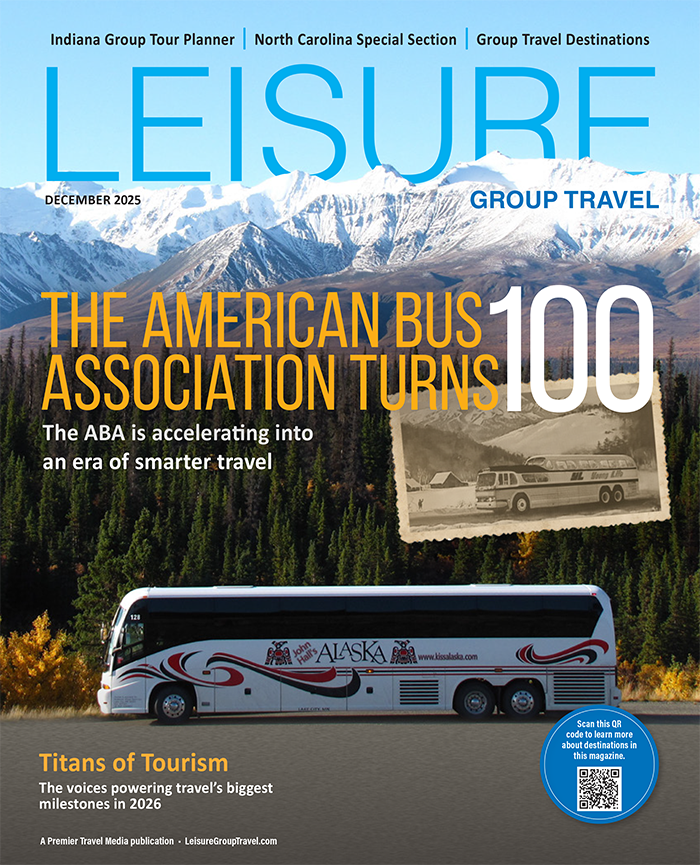Follow these guidelines to ensure a stress-free trip for your inexperienced international travelers
A student journey abroad can potentially be a highlight for a youth group, even a life-changing event. Teens have the opportunity to visit religious landmarks and places of worship while connecting with their fellow travelers and immersing themselves in new cultures. However, any trip in a foreign country carries some risks, especially for Western travelers visiting countries with potential political unrest. These eight tips will not only keep your group safe, they’ll also ensure a shift in priorities from the logistical to the spiritual.
1) Before You Depart, Enroll in STEP
STEP (Smart Traveler Enrollment Program) is a free federal service that allows U.S. citizens traveling or living abroad to enroll with the closest American embassy or consulate to their destination. Enrolling your group members in the program provides them with safety alerts, travel advisories and a database where they can store emergency contact information. The service also provides fact sheets and country information helpful for trip organizers.
2) Consider Travel Insurance
For a trip where you’ll likely be supervising minors, you should strongly consider travel insurance to cover any potential medical or financial complications. For example, if a group member falls ill from food poisoning or otherwise can’t adjust to foreign cuisine, insurance offered by companies such as Travelex or RoamRight can ensure proper treatment at a reasonable cost at an English-speaking facility. If a youth needs to cancel his or her participation last minute, travel insurance can help you recoup the loss, and you’ll be able to compensate for lost luggage or damaged property abroad. In politically volatile countries such as Israel or Egypt, some insurance plans offer deployed security personal or special operations assistance to ensure your group is evacuated safely.
3) Hire Security
While it may prove costly, hiring a private security firm can grant your young travelers and their parents peace of mind. Guards can accompany you during the day and serve as lookout during evenings at your hotel, and their international experience allows them to also serve as a translator and guide. If your group wants security only during visits to holy sites, be sure to thoroughly vet your local tour operator. Companies that speak English and coordinate with international tour companies are the safest bet when planning a visit and the most likely to supply on-site security.
4) Load Your Phone
If your group members plan on bringing their smartphones, there are hundreds of apps to consider downloading before departure. Take advantage of free domestic Wi-Fi and create a mobile arsenal that ensures you don’t appear like an obvious tourist consulting a map in a crowded street. Comprehensively research your area with Google Maps or ArcGIS, apps that will plan your route in English and can produce hard copies for reference. As well, services like Metro can plan routes using local public transportation, and DB Navigator can book a train ticket anywhere in continental Europe.
5) Prepare for the Language and Currency Barrier
While many notable religious sites accommodate international visitors, your group should be prepared with basic words and phrases in the nation’s language. Countless pilgrims and worshipers have been scammed by fast-talking locals who take advantage of the language barrier to inflate prices on merchandise or taken the wrong transportation option. To combat this, ensure your group members are equipped with apps such as Google Translate and pocket phrasebooks to navigate a conversation if they are separated. The transition to foreign money can also hinder travelers, so encourage group members to visit a currency exchange before the trip to acquire some cash before arrival. This ensures they have available money if there is an issue in the foreign airport or if they need to buy something immediately without a convenient ATM. Also encourage your youths to carry cash; some international cards are not accepted at all businesses, and it decreases the chances of identity theft.
6) Dress Modestly
Expectations of modesty vary in every culture, so discourage your group members from wearing tank tops, athletic shorts or shirts with potentially offensive imagery. Bold colors, expensive jewelry and obvious American brands may distinguish your party and make your group more vulnerable to pickpockets that target foreign visitors. They also ensure you can enter sacred spaces, as some religious sites such as the Western Wall in Jerusalem enforce dress codes or require women to wear a shawl. Another must is comfortable, closed-toe footwear that allows you to travel off paved areas and move quickly in the case of an emergency.
7) Protect Your Passport
Before you depart, group leaders should make multiple copies of everyone’s passport. Compile them into a folder for your reference, give an additional one to each group member in case it’s lost and provide a copy to a co-worker back home in case of an emergency. Consider renting a safe in your hotel for overnight storage and constantly remind students to keep their passports in their front pocket. This significantly minimizes the risk for pickpocketing and offers easy access if they need to identify themselves.
8) Remember Food and Drink Safety
Ingredients or bacteria common in foreign cuisine might be unfamiliar to your group, so take extra precaution with the food you consume. Avoid raw vegetables you haven’t handled yourself, raw or undercooked seafood and dairy products that haven’t been pasteurized. If your group is preparing for a long day of hiking or praying, consider purchasing a large package of bottled water to ensure nobody becomes sick. Also, don’t include ice cubes in any drinks or receive them from strangers; the ice cubes are often sourced from potentially bacteria-infected rivers, and unaccounted-for beverages may be drugged.







